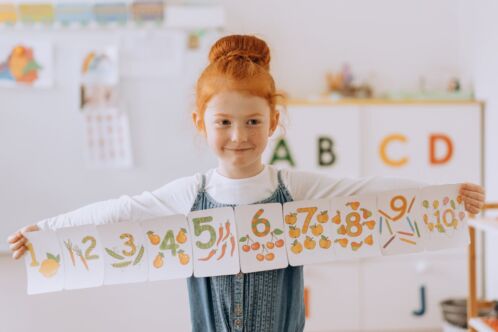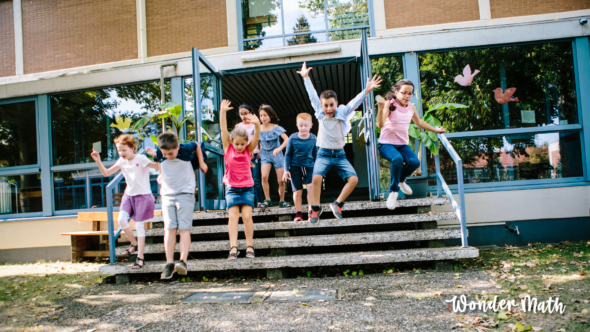Whether you’re a parent looking for a new way to get your kiddo engaged or a teacher looking to try something new, emphasizing teamwork and cooperation can revolutionize the way kids learn math.
A recent study of more than 700 fifth-grade students led by University of Illinois Urbana-Champaign found that children who participate in social learning groups “develop better decision-making skills than children who study the same curriculum via teacher-led discussions.” Similar studies tracking math skills in first-graders show comparable positive outcomes from structured group-centered curricula.
The Dream Team
Well-planned study groups make learning feel more like playing—and who doesn’t want that?! Your team of junior mathletes can work together to break down math problems and, in the process, make learning more interactive and even imaginative. Here are some tips for parents on getting your mathletes together:
- Talk to your math teacher. Ask the expert! Get insight into what subject matter needs extra coverage, as well as which children will work well with one another (and which ones won’t).
- Chat with other parents. Start organizing your little one’s team by organizing your team first. Remember, getting your team together requires moms and dads to be honest about the needs and abilities of their children, as well as what each parent can reasonably take on themselves.
- Allocate leadership roles equitably. Someone has to bring snacks! Consider rotating duties among families, especially hosting and team leader roles, to prevent burnout.
- Choose a time that can become routine. If you can meet weekly (or bi-weekly!), you’re fast on the way to establishing a routine, which promotes consistency and sets kids on the path to achieving goals.
- Define what “success” means for your group. Emphasize effort and focus over results. Good grades will come with time!
Smaller math teams are beneficial for learners for the same reasons small class sizes are—more individual attention per student, more manageable group dynamics, and better precision when gauging the speed and comfort levels of each learner. Remember, when a math team is fun, classroom results are soon on the way!




